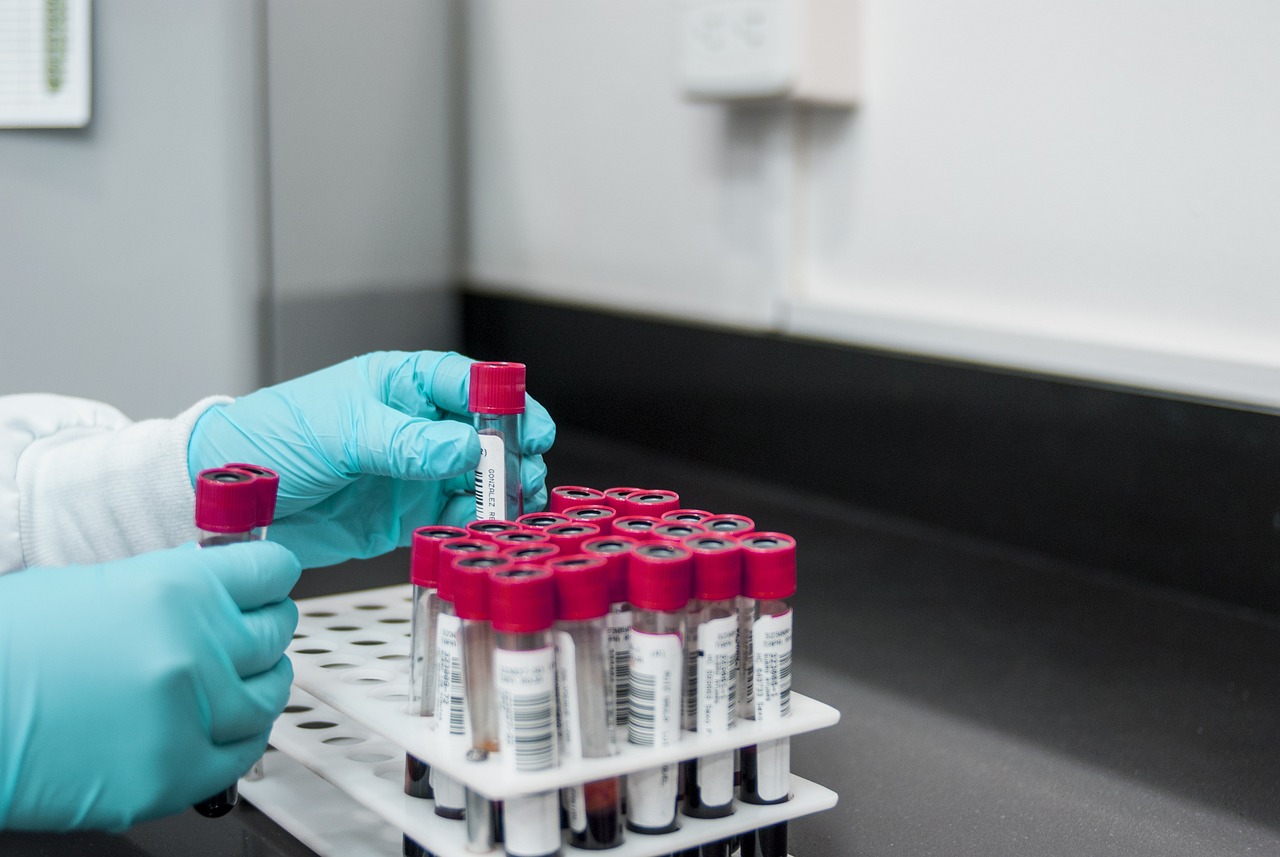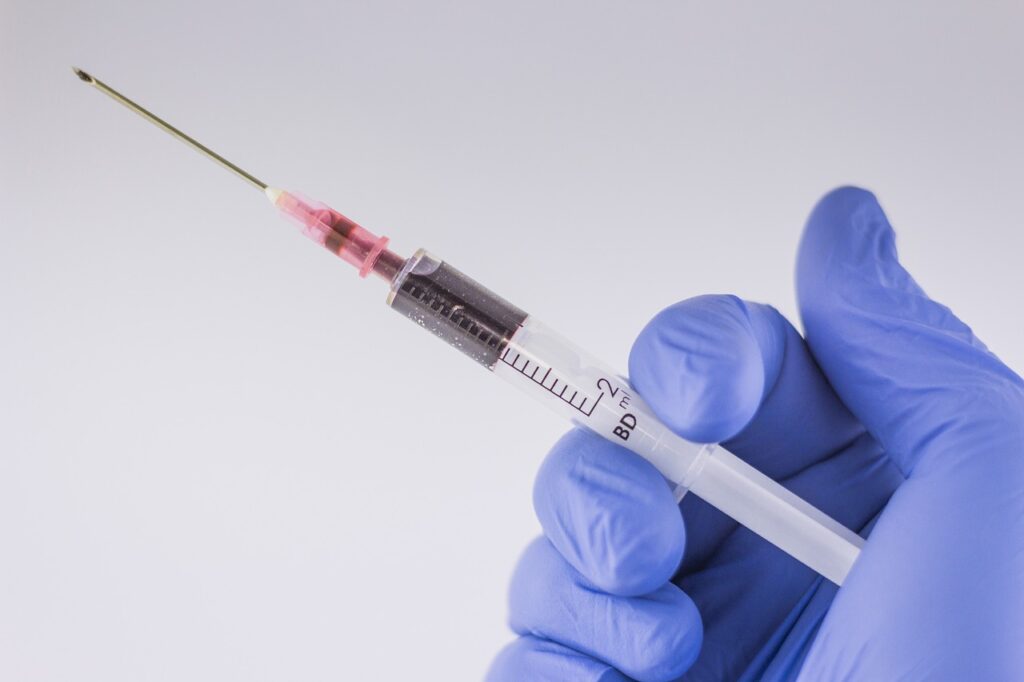Shingles, medically known as Herpes Zoster, is a viral infection causing painful rashes and blisters. This condition is significant in public health, especially among the elderly in Fairfield, CT. According to the Centers for Disease Control and Prevention (CDC), nearly one in three people in the United States will develop shingles in their lifetime, with older adults being at higher risk. Prompt treatment at an urgent care facility can be crucial in managing symptoms and preventing complications.
Table of Contents
Key Takeaways
✔ Primary care doctors in Southington, CT, play a vital role in educating caregivers about sinusitis, a condition characterized by inflammation of the sinus cavities in children. ✔ Sinusitis in children refers to inflammation or infection of the sinus cavities and can cause symptoms like nasal congestion and facial pain. ✔ Common symptoms of sinusitis in children include nasal congestion, facial pressure, headache, and thick nasal discharge. ✔ Sinusitis in children can be caused by viral or bacterial infections, allergies, structural abnormalities, and environmental factors. ✔ Untreated sinusitis in children can lead to complications such as chronic sinusitis, recurrent infections, and the spread of infection to nearby structures. ✔ Primary care doctors in Southington, CT, offer various treatment options for sinusitis in children, including non-pharmacological interventions like nasal saline irrigation.What is Sinusitis in Children?
Sinusitis in children refers to the inflammation or infection of the sinus cavities, air-filled spaces within the bones of the face and skull. These cavities are lined with mucous membranes, and when they become swollen or infected, it can lead to various symptoms such as nasal congestion, facial pain or pressure, cough, headache, and thick nasal discharge.
Symptoms and Signs of Sinusitis
Sinusitis presents with various symptoms and signs, which can vary depending on the child’s age, the underlying cause, and the duration of the condition. Recognizing these symptoms with the help of a primary care doctor in Southington, CT, is crucial for prompt diagnosis and effective management of sinusitis in children.
Nasal Congestion
One of the hallmark symptoms of sinusitis is nasal congestion or stuffiness, which occurs due to inflammation and swelling of the nasal passages. Children may have difficulty breathing through the nose, leading to mouth breathing and snoring, particularly at night.
Nasal Discharge
Children with sinusitis often experience a thick, discolored nasal discharge, which may be yellow or green. This discharge results from the accumulation of mucus and pus within the inflamed sinuses, which can be observed dripping from the nostrils or causing postnasal drip.
Facial Pain or Pressure
Children with sinusitis may complain of facial pain or pressure, particularly over the affected sinuses. The pain is often described as a dull ache or pressure sensation and may be localized to the forehead, cheeks, or around the eyes.
Headache
Sinus headaches are common in children with sinusitis and are typically felt as a deep, constant pain in the forehead, temples, or behind the eyes. The headache may worsen with changes in position, such as bending forward or lying down.
Cough
A persistent cough, particularly at night, is a frequent symptom of sinusitis in children. The cough may be dry or productive and is often worse when lying down due to increased mucus drainage from the sinuses into the throat.
Fever
In cases of acute bacterial sinusitis, children may develop a low-grade fever, typically ranging from 100.4°F to 102.2°F. Fever is less common in viral sinusitis but may occur if there is a secondary bacterial infection.
Halitosis (Bad Breath)
Children with sinusitis may have foul-smelling breath (halitosis) due to the sinuses’ accumulation of bacteria and mucus. This odor is often noticeable to caregivers or primary care doctors in Southington, CT.
Reduced Sense of Smell and Taste
Sinusitis can impair the child’s sense of smell (olfactory dysfunction) and taste, leading to decreased appetite and enjoyment of food. This symptom is more common in chronic sinusitis but may also occur in acute cases.
Ear Pressure or Fullness
In some cases, sinusitis can cause a sensation of pressure or fullness in the ears, leading to ear discomfort or popping sensations. This occurs due to the proximity of the sinuses to the middle ear cavity.
Causes and Risk Factors of Sinusitis
Various factors can contribute to the development of sinusitis in children. By identifying these factors, primary care doctors in Southington, CT, can tailor treatment plans to address the underlying causes and reduce the frequency and severity of sinusitis episodes.
Viral Infections
The common cold caused by rhinovirus, influenza viruses, and other respiratory viruses is a primary trigger for sinusitis in children. These viruses inflame the nasal passages, leading to congestion and obstruction of the sinus openings, creating an environment conducive to bacterial colonization and subsequent infection.
Bacterial Infections
Following a viral upper respiratory infection, bacteria can opportunistically invade the inflamed sinuses, leading to acute bacterial sinusitis. Common bacterial pathogens include Streptococcus pneumoniae, Haemophilus influenzae, and Moraxella catarrhalis. The risk of bacterial sinusitis may be heightened in children with compromised immune systems or structural abnormalities.
Allergies
Allergic rhinitis, triggered by allergens such as pollen, dust mites, pet dander, and mold spores, can cause chronic inflammation of the nasal passages. This persistent inflammation can disrupt normal sinus drainage and ventilation, predisposing children to recurrent episodes of sinusitis.
Structural Abnormalities
Anatomical variations such as a deviated septum, nasal polyps, or narrow sinus openings can obstruct the flow of mucus and air within the sinuses. This obstruction impairs sinus drainage and ventilation, heightening the risk of sinus infections. This is particularly concerning for children with underlying conditions such as cystic fibrosis or primary ciliary dyskinesia.
Environmental Factors
Exposure to environmental pollutants, including airborne particulate matter, cigarette smoke, chemical fumes, and allergens, can irritate the nasal passages and exacerbate inflammation. Dry air and changes in altitude can also dry out the nasal mucosa, compromising its ability to clear mucus and increasing susceptibility to sinusitis.
Nasal Irritants
Exposure to nasal irritants such as strong odors, chemical fumes, and certain medications (e.g., nasal decongestant sprays) can irritate the nasal mucosa and trigger inflammation. In particular, prolonged use of nasal decongestants can lead to rebound congestion and worsening sinus symptoms.
Family History
Genetic predisposition may influence an individual’s susceptibility to sinusitis. Children with a family history of chronic sinusitis may inherit genetic traits predisposing them to recurrent sinus infections. These traits can also increase susceptibility to underlying conditions such as cystic fibrosis or immune system disorders.
Ciliary Dysfunction
Primary ciliary dyskinesia (PCD) and cystic fibrosis are genetic conditions characterized by impaired ciliary function. Cilia are hair-like structures that line the respiratory tract and help clear mucus and debris. Dysfunction of ciliary movement in these conditions impairs mucus clearance from the sinuses, leading to stagnation of secretions that increase susceptibility to sinus infections.
Complications of Untreated Sinusitis in Children
When left untreated sinusitis in children, it can lead to various complications that may require medical intervention from a primary care doctor in Southington, CT. These complications can arise due to the persistence of infection, inflammation, or obstruction within the sinuses, and they may result in prolonged discomfort and potential long-term health consequences.
Chronic Sinusitis
One of the primary complications of untreated sinusitis is the development of chronic sinusitis, characterized by persistent inflammation and infection of the sinuses lasting longer than 12 weeks. Chronic sinusitis can lead to recurrent sinus infections and exacerbation of symptoms, impacting the child’s quality of life and requiring ongoing management by a primary care doctor in Southington, CT.
Recurrent Sinus Infections
Untreated sinusitis increases the risk of recurrent sinus infections in children, as the inflamed and obstructed sinuses provide an ideal environment for bacterial growth and colonization. Recurrent infections may lead to frequent episodes of illness, missed school days, and the need for repeated courses of antibiotics prescribed by a primary care doctor in Southington, CT.
Spread of Infection
Sinusitis can sometimes spread infection beyond the sinuses to nearby structures, such as the eyes, ears, or brain. Sinusitis-related infections may cause complications such as orbital cellulitis (infection of the eye socket), otitis media (middle ear infection), or meningitis (infection of the brain and spinal cord membranes). These complications may require specialized medical care and have serious health consequences if not promptly treated by a primary care doctor in Southington, CT.
Sinus Abscess
In severe cases of untreated sinusitis, a pus (abscess) may form within one of the sinus cavities. A sinus abscess can cause severe pain, swelling, pressure in the affected area, and symptoms such as fever and difficulty breathing. Drainage of the abscess and antibiotic therapy are typically required, often coordinated by a primary care doctor in Southington, CT, in collaboration with otolaryngologists (ear, nose, and throat specialists) or other specialists.
Chronic Fatigue and Malaise
Prolonged sinusitis can result in chronic fatigue and malaise in children, as the persistent inflammation and infection may disrupt sleep patterns, reduce energy levels, and impair overall well-being. Children with chronic sinusitis may experience ongoing fatigue, irritability, and difficulty concentrating, impacting their academic performance and daily activities. Chronic fatigue and malaise management may involve lifestyle modifications, symptom management, and supportive care provided by a primary care doctor in Southington, CT.
Impaired Growth and Development
In severe cases, chronic or recurrent sinusitis in children can affect growth and development, particularly if the condition leads to poor nutrition, frequent illness, or disruptions in sleep patterns. Children with untreated sinusitis may experience delays in physical growth, cognitive development, and emotional well-being, highlighting the importance of early intervention and management by a primary care doctor in Southington, CT, to prevent long-term complications.
Treatment Options by Your Primary Care Doctor in Southington, CT
Caregivers or parents need to discuss treatment options with a primary care doctor in Southington, CT, to determine the most appropriate course of action based on the child’s symptoms, underlying causes, and medical history.
Non-Pharmacological Interventions
Nasal Saline Irrigation
Nasal saline irrigation, also known as nasal douche or nasal lavage, involves flushing the nasal passages with a saline solution to help clear mucus, allergens, and irritants from the sinuses. This can be done using a saline nasal spray, squeeze bottle, or neti pot. Primary care doctors in Southington, CT, often recommend nasal saline irrigation as a safe and effective adjunctive treatment for sinusitis, particularly for relieving nasal congestion and promoting sinus drainage.
Steam Inhalation
Steam inhalation involves inhaling warm, moist air to help soothe nasal congestion, reduce inflammation, and promote sinus drainage. Children can inhale steam by taking a hot shower or sitting in a steamy bathroom with the shower running. Adding essential oils such as eucalyptus or menthol to the steam can enhance its decongestant effects. Primary care doctors in Southington, CT, may recommend steam inhalation as a simple and inexpensive home remedy for sinusitis relief.
Humidification
Adding moisture to the air with a humidifier can help alleviate dryness in the nasal passages and sinuses, making it easier for mucus to flow and reducing nasal congestion. Humidification is especially beneficial during the winter months, when indoor heating systems can dry out the air. Primary care doctors in Southington, CT, may advise caregivers to use a cool-mist humidifier in the child’s bedroom to maintain optimal humidity levels and improve sinusitis symptoms.
Pharmacological Interventions
Antibiotics
In cases of bacterial sinusitis or severe symptoms that persist for more than 10 days, primary care doctors in Southington, CT, may prescribe antibiotics to help clear the infection. Commonly prescribed antibiotics for sinusitis include amoxicillin, amoxicillin-clavulanate, and trimethoprim-sulfamethoxazole. Caregivers need to follow the prescribed antibiotic regimen and complete the full course of treatment to ensure effective eradication of the infection.
Decongestants
Primary care doctors in Southington, CT, may recommend oral or nasal decongestants to help alleviate nasal congestion and promote sinus drainage. Decongestants constrict blood vessels in the nasal passages, reducing swelling and congestion. Examples of over-the-counter decongestants include pseudoephedrine and phenylephrine. Care should be taken when using decongestant nasal sprays for more than a few days to avoid rebound congestion.
Antihistamines
For children with allergic sinusitis or allergic rhinitis, primary care doctors in Southington, CT, may prescribe oral antihistamines to help reduce allergic inflammation and relieve symptoms such as sneezing, itching, and nasal congestion. Common antihistamines include cetirizine, loratadine, and fexofenadine. Antihistamines are most effective when taken regularly to prevent allergy symptoms, rather than as needed.
Surgical Options (in Cases of Chronic or Severe Sinusitis)
In cases of chronic or severe sinusitis that do not respond to conservative treatments, primary care doctors in Southington, CT, may refer the child to an otolaryngologist (ear, nose, and throat specialist) for further evaluation and consideration of surgical options. Surgical interventions for sinusitis may include:
Functional Endoscopic Sinus Surgery (FESS)
ESS is a minimally invasive procedure performed using a thin, flexible endoscope inserted through the nostrils to access and open blocked sinus passages. The surgeon removes polyps, enlarges sinus openings, and improves sinus drainage to alleviate symptoms and promote healing.
Balloon Sinuplasty
Balloon sinuplasty is a newer, less invasive procedure that involves inserting a small balloon catheter into the blocked sinus opening and inflating it to widen the passage. This helps restore normal sinus drainage and ventilation without the need for cutting or removal of tissue.
Sinus Surgery
In cases of severe or recurrent sinusitis associated with structural abnormalities, such as nasal polyps or deviated septum, primary care doctors in Southington, CT, may recommend traditional sinus surgery to correct the underlying anatomical issues and improve sinus function. This may involve removing obstructing tissue, straightening the nasal septum, or enlarging sinus openings to facilitate drainage.
Frequently Asked Questions
Are there any lifestyle changes that can help prevent sinusitis in children?
Lifestyle changes that can help prevent sinusitis in children include encouraging regular handwashing to prevent the spread of viruses and bacteria, maintaining good indoor air quality by using air purifiers and avoiding exposure to indoor pollutants and allergens, promoting adequate hydration to keep the nasal passages moist and facilitate mucus clearance, and encouraging healthy habits such as regular exercise, balanced nutrition, and sufficient sleep to support overall immune function.
Can sinusitis in children be prevented through vaccination or immunization?
While vaccines and immunizations primarily target specific pathogens responsible for diseases such as influenza and pneumococcal infections, they can indirectly help prevent sinusitis by reducing the likelihood of respiratory infections that can lead to sinusitis as a secondary complication. For example, the influenza vaccine can help prevent flu-related sinusitis, and the pneumococcal vaccine can reduce the risk of sinusitis caused by Streptococcus pneumoniae.
Is it safe for children to fly or travel with sinusitis?
It’s generally safe for children to fly or travel with mild sinusitis, especially if symptoms are well-managed and there are no complications such as ear pain or fever. However, changes in air pressure during takeoff and landing may exacerbate sinus pain and congestion. Encouraging nasal decongestant use before the flight, staying hydrated, and using saline nasal sprays can help alleviate symptoms and minimize discomfort during travel. It’s advisable to consult with a primary care doctor in Southington, CT, before traveling with a child with sinusitis, especially if there are concerns about ear involvement or other complications.
Is Vicks a good remedy for sinusitis?
Vicks VapoRub, a topical mentholated ointment, is often used as a home remedy to relieve nasal congestion and sinusitis symptoms. While some people find temporary relief from applying Vicks to the chest, neck, or under the nostrils, there is limited scientific evidence supporting its effectiveness in treating sinusitis. Vicks may provide a sensation of relief by producing a cooling effect and temporarily opening the nasal passages, but it does not address the underlying cause of sinusitis. It’s essential to use.
What foods help clear sinuses?
Certain foods and beverages may help alleviate sinusitis symptoms by thinning mucus and promoting sinus drainage. These remedies include consuming hot liquids such as herbal teas and clear broths and eating foods rich in vitamin C, such as citrus fruits, strawberries, and bell peppers.
Relieve Your Child's Sinusitis with the Right Partner
Is your child struggling with sinusitis symptoms like congestion, headaches, or pink eye? Docs Primary Care – Southington is here to help! Our pediatric specialists offer compassionate and comprehensive care to diagnose and treat sinusitis in children. With a focus on gentle, effective treatments, we’ll help your little one breathe easier and feel better quickly. Don’t let sinusitis disrupt your child’s life any longer – schedule an appointment with Docs Primary Care – Southington!





















 Intense exercise
Intense exercise






